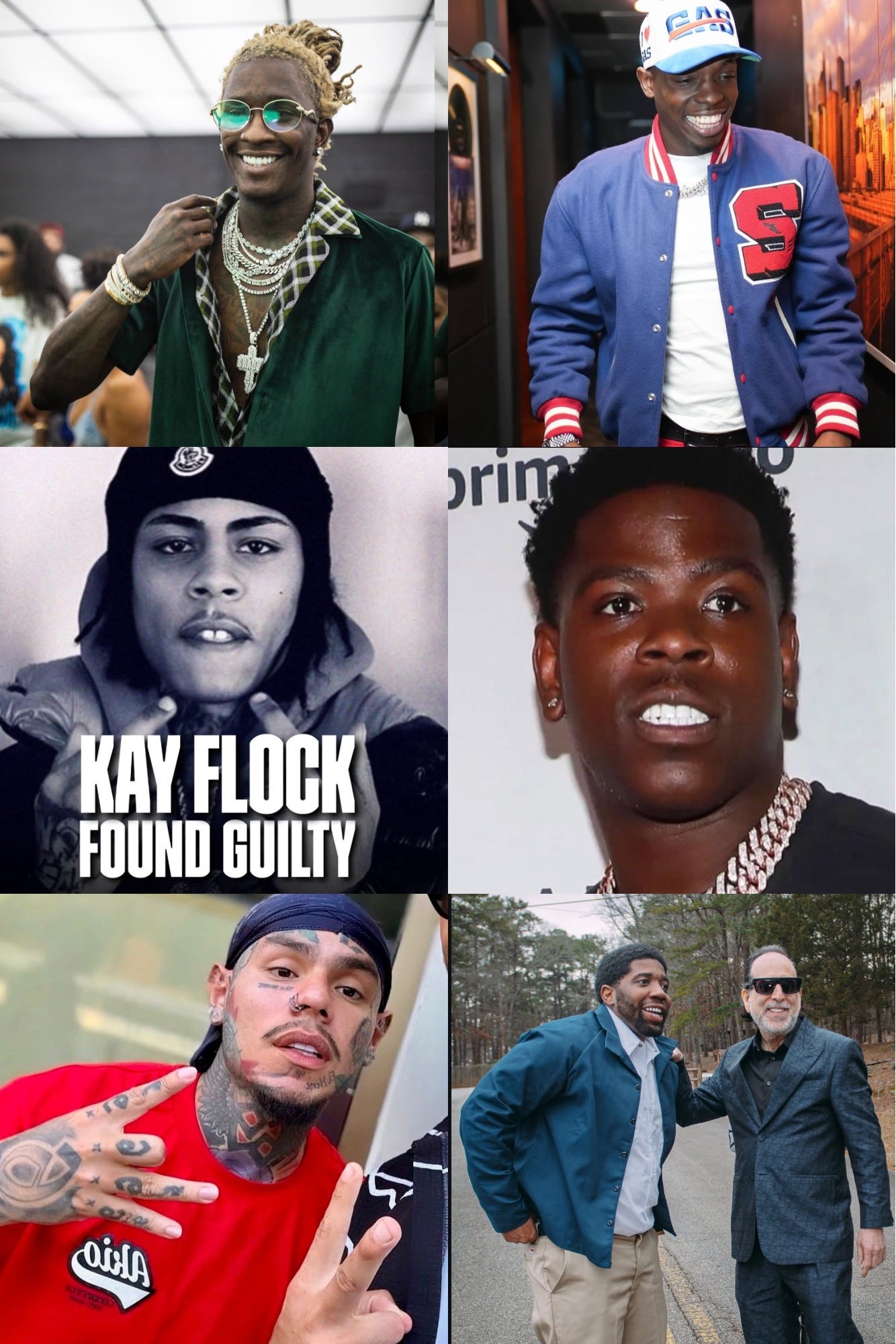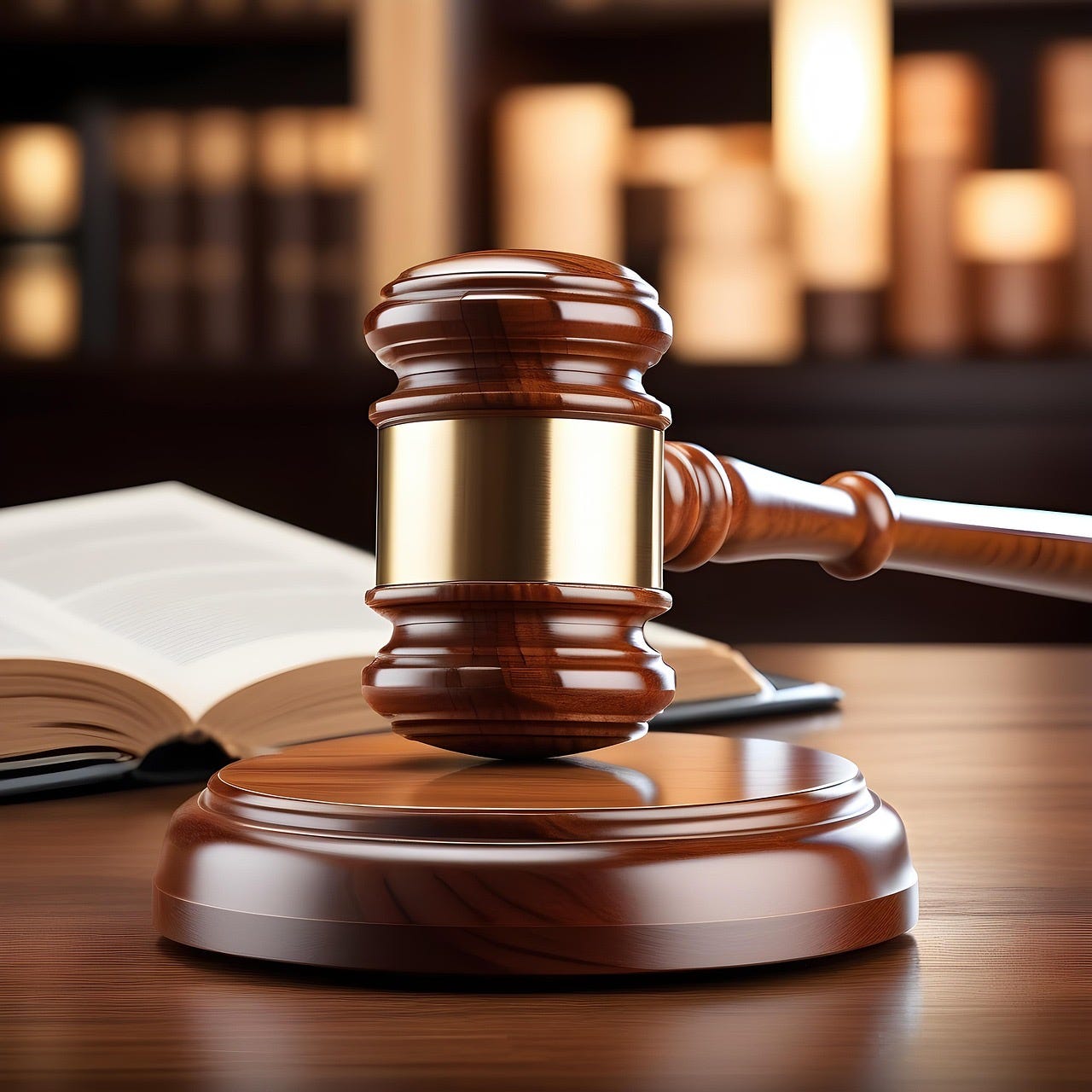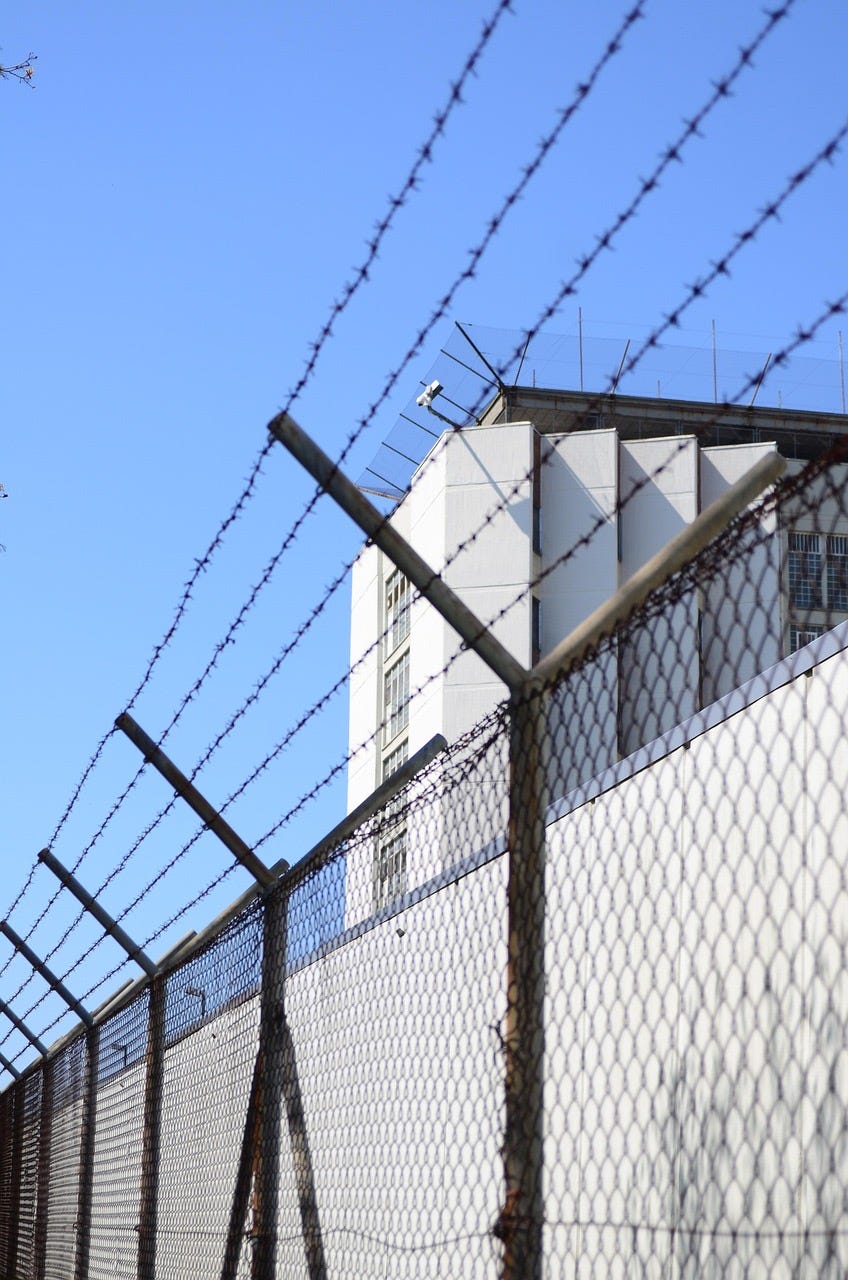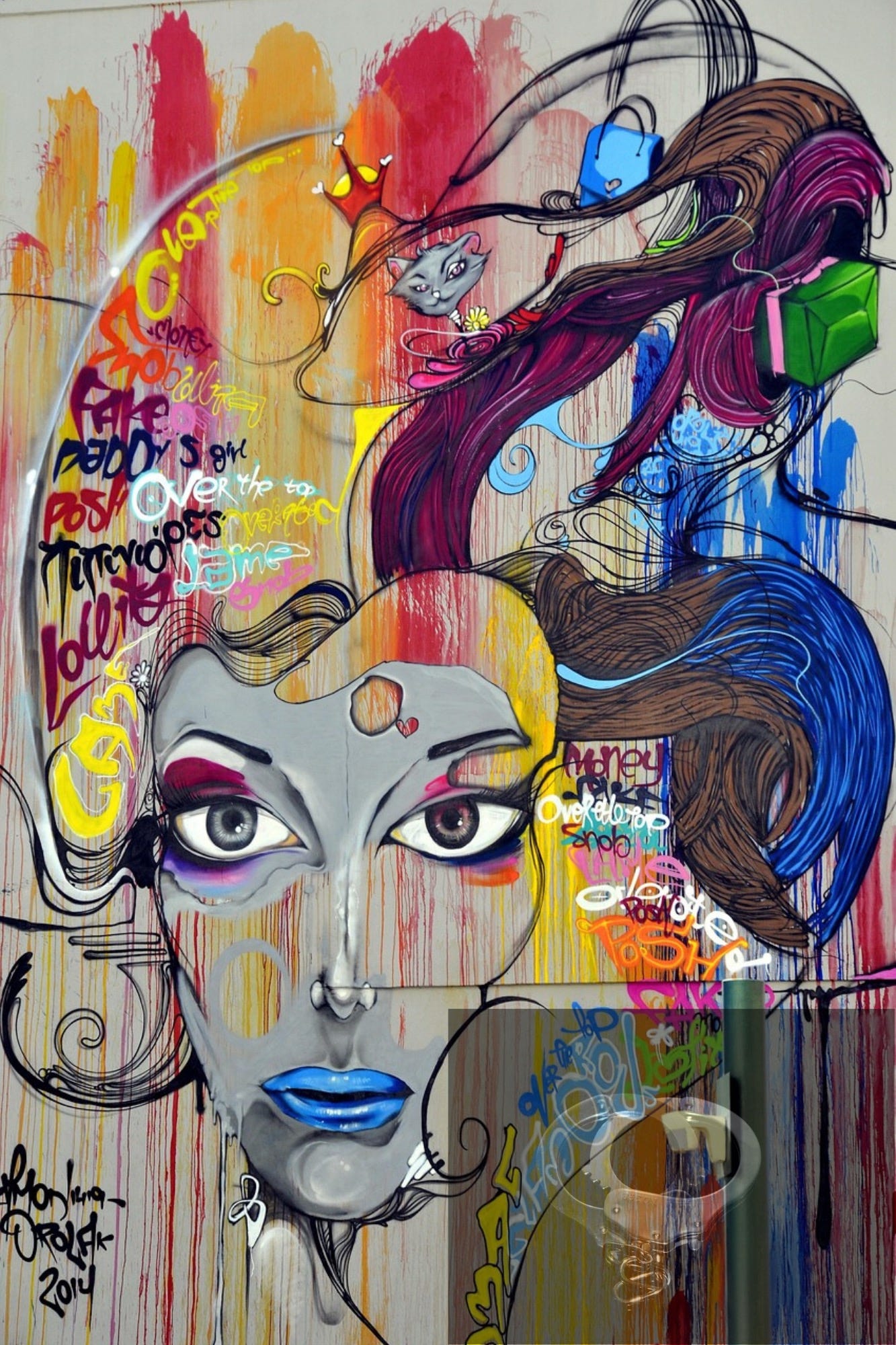Rappers & RICO Cases: What’s Really Happening?
Hip-Hop’s New Legal Battlefield
By Rhythm and Report
There was a time when being a rapper meant dodging label politics, bad contracts, and haters online. Now? You gotta watch out for the feds too.
Over the past few years, more and more rappers are finding themselves at the center of RICO cases—a law originally meant to take down organized crime bosses is now being used to lock up artists, their crews, and in some cases, entire movements. From Young Thug to Kay Flock, 6ix9ine, Casanova, Bobby Shmurda, and YFN Lucci—the list is growing. And the deeper you look, the more you start to ask:
Is this really about justice—or are they just trying to silence something they don’t understand?
We dug into the history of RICO, the artists affected, and what it says about the bigger system we’re up against. Because this ain’t just about crime—it’s about control, culture, and who gets to tell their story.
WHAT IS RICO, REALLY?
RICO stands for the Racketeer Influenced and Corrupt Organizations Act. It was created in 1970 to bring down the Mafia. Think: organized crime, family ties, long-term criminal operations. The law lets prosecutors charge a whole group of people—not just individuals—based on a “pattern” of behavior tied to a so-called criminal organization.
But here’s where it gets tricky:
With RICO, you don’t have to do the crime—they can hit you just for being associated with it. Even lyrics, music videos, or IG captions can be used to claim you’re part of a criminal enterprise.
So when rappers get indicted under RICO, it’s not just about what they did—it’s about who they’re around, what they post, and even what they rap about.
That’s a slippery slope. Especially in a genre where storytelling, metaphor, and bravado are part of the art form.
WHO’S BEEN TARGETED?
Young Thug & YSL
In May 2022, Young Thug (real name: Jeffery Williams) was arrested in a sweeping RICO indictment in Atlanta. Prosecutors said YSL—Young Slime Life—wasn’t just a record label, it was a street gang. They tied Thug to murders, shootings, and drug trafficking, using his lyrics, music videos, and even IG posts as part of the evidence.
But ask anyone in the culture: Thug helped build Atlanta’s sound for a whole generation. He wasn’t just an artist in the mix—he was the artist. An innovator, a fashion icon, a label boss. But was he caught up in the streets—or was the system just uncomfortable with his influence?
In 2024, after one of the longest trials in Georgia’s history, he took a plea deal. Time served and probation. But the message had already been sent: rap ain’t safe.
Kay Flock
Bronx drill rapper Kay Flock (Kevin Perez) came up fast with viral tracks and a raw street presence. But behind the music was a murder charge tied to a 2021 shooting—and in 2023, it turned into a federal RICO case. The feds said his rap crew was a real gang involved in violence and drug activity.
In 2025, he was acquitted of murder, but still convicted on RICO and gun charges. It’s the kind of outcome that leaves fans confused, and artists scared. How do you make it out when everything about your art is treated like evidence?
Casanova
In 2020, Casanova (Caswell Senior) got caught up in a RICO sweep with the Untouchable Gorilla Stone Nation. He wasn’t just facing one or two charges—they were trying to tie him to an entire operation, from drug trafficking to shootings. The Brooklyn rapper, who had been publicly talking about growth, change, and moving differently, found himself right back in the crosshairs of the system.
He later pled guilty and is serving time now. Another reminder that no matter how far you rise, the past—and the people around you—can still drag you down. What made Casanova’s case hit harder was the fact that he had become vocal about trying to leave the street life behind. He spoke at schools, encouraged youth to stay out of trouble, and often used his platform to promote positivity. But proximity can be just as dangerous as participation in the eyes of the law. His indictment wasn’t just about what he did—it was also about who he knew. And that’s the danger with RICO: guilt by association becomes enough to take your freedom. It raises real questions about whether Black artists are ever truly allowed to evolve, or if their past will always be weaponized against them.
6ix9ine
We can’t talk RICO without talking about the rainbow-haired chaos agent himself. In 2018, 6ix9ine got hit with federal RICO charges for his involvement with the Nine Trey Bloods. But he flipped. Testified. Named names. Got out early.
Say what you want about him (and a lot of us have), but his case set off a new era: the feds realized just how deep the rap game and street politics were tied—and how much they could use it to build cases.
Bobby Shmurda
Before all of this, there was Bobby. His GS9 indictment in 2014 was one of the first big RICO moments in hip-hop. Just as “Hot N****” was taking off, Bobby was taken down—charged with conspiracy, weapons possession, and more.
His case became a blueprint for how prosecutors would later approach other artists: using lyrics not as metaphor or bravado, but as direct confessions. Beyond the bars, Bobby’s social media presence and even dance moves were dissected for meaning. The same “Shmoney Dance” that made him a viral sensation was suddenly part of a prosecution strategy to paint him as dangerous. It was a turning point—not just in his life, but in how the legal system began crafting a playbook for targeting young Black artists with street credibility. His arrest and conviction sent a chilling message through the industry: your talent can take you global, but your past can still bring you down.
YFN Lucci
Then there’s YFN Lucci—another Atlanta rapper whose RICO case flew under the radar but fits the same pattern. Prosecutors say he’s tied to the Bloods and a series of violent crimes. Like with the others, music and affiliation are being used to build the case.
What stood out was how easily law enforcement blurred the line between Lucci the artist and Rayshawn Bennett the individual—presenting his bars not as storytelling or performance, but as factual admissions. Once again, we see the system using the culture itself as evidence, without considering the artistic license or exaggeration that’s been a hallmark of hip-hop for decades.
Art vs. Crime
Let’s be real—hip-hop has always blurred the line between real life and entertainment. That’s part of what makes it so powerful. It’s raw. It’s honest. It’s reflective of the environments artists come from. But now, that honesty is being flipped and weaponized in courtrooms.
Prosecutors are using rap lyrics, music videos, and social media posts as evidence to paint artists as criminals.
That means a bar you wrote in the booth after a long night might be used to say you’re part of a gang. A music video prop becomes “proof” of illegal activity. A tweet or Instagram caption can become Exhibit A.
Take Young Thug’s case—prosecutors quoted his lyrics like “I never killed anybody but I got something to do with that body” as if it was a confession, not a creative line. They even pointed to YSL chains and music video aesthetics to try and build a narrative that his label was a front for organized crime.
But if that’s the standard, then where do we draw the line?
You don’t see country singers on trial for murder because they sang about a bar fight. You don’t see Quentin Tarantino being asked if he actually committed the violence in his films. But when a rapper speaks on pain, survival, or street life—suddenly it’s “evidence.”
This isn’t just unfair—it’s dangerous.
It tells young Black artists that their voices are only valid if they censor their truth. That the very stories they tell to survive or escape their circumstances can land them behind bars.
Even hip-hop legends have spoken up. Jay-Z and Meek Mill backed legislation in New York to stop the use of lyrics in court. And in California, a law was passed requiring judges to review whether lyrics used as evidence are actually relevant to the case, or just being used to bias a jury.
There’s a long way to go, though. Across the country, lyrics are still being brought into courtrooms as if rap isn’t a form of expression, but a written confession.
We have to ask ourselves—are they prosecuting crime, or are they criminalizing art?
Because if they keep blurring those lines, hip-hop won’t just be targeted—it’ll be silenced.
If rap is the voice of the people, why is the system working overtime to silence it? Lyrics are being twisted into confessions, videos into criminal intent. The courtroom isn’t just seeking justice—it’s performing a takedown of culture, one artist at a time.
Because when truth comes from the block, not the boardroom, it gets labeled a threat.
This is just Part 1. In the next chapter, we’re unpacking the racial dynamics, legal double standards, and the industries that cash in when hip-hop is under attack.
“I’m not a businessman, I’m a business, man.” – Jay-Z
So here’s the real question:
Who’s profiting when the business becomes the evidence?
With love for the culture,
Rhythm and Report




